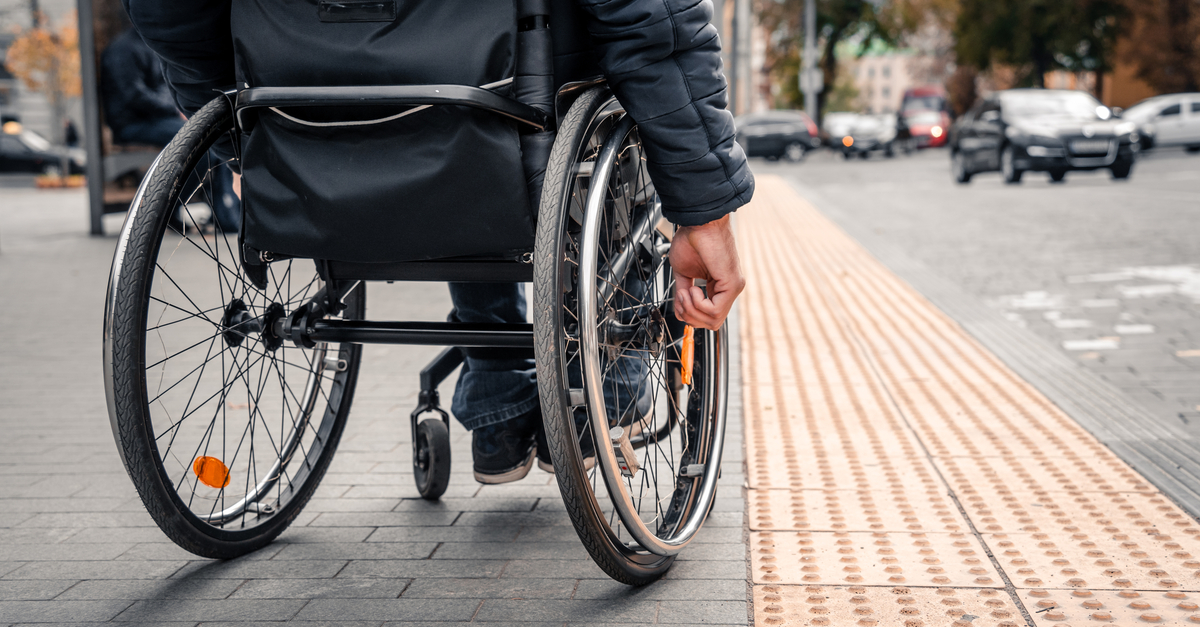
Paralysis from Medical Malpractice
Categories: Paralysis
Victims Who Suffer Paralysis from Medical Malpractice Should Call For Help
Paralysis is perhaps one of the most devastating injuries that a person can experience. Paralysis is often permanent, leaving victims with some degree of impairment for the rest of their lives. Some victims may never walk again, while others may have limited to no movement. Sometimes, paralysis occurs, and there is nothing that any medical professional could do to prevent or reverse the paralysis. However, there are times when a person is paralyzed without reason due to an error made with their medical care. This is referred to as medical malpractice.
Paralysis can strike in many different forms. The most obvious is paraplegia, the inability to have complete control or sensation in the lower body, specifically the lower torso and legs. There is also quadriplegia which is paralysis to the ensure body below the neck, including all four limbs. But other forms of paralysis could be due to medical malpractice, which could be particularly devastating for a victim and their family.
If you or a loved one suffered from paralysis after any medical procedure, you might have been the victim of medical malpractice. Learn what rights you may have and how you may be entitled to compensation for pain and suffering, lost wages, and for your conscious pain and suffering by calling one of our experienced paralysis lawyers available here [LINK].
What is Paralysis?
According to the Cleveland Clinic, paralysis occurs when a person cannot make voluntary muscle movements. In a person without paralysis, nerves send signals to the muscles in the body, allowing the muscles to move. When a person is paralyzed, nerves cannot send signals to muscles. There are varying degrees of paralysis, depending on the level at which the spinal cord injury occurred.
Types of Paralysis
There are a few different types of paralysis. People with partial paralysis have control of some muscles, but not all, while individuals with complete paralysis do not have control over any muscles. Types of paralysis include the following:
Hemiplegia – People with hemiplegia have paralysis on one side of the body, including both the arm and leg
Paraplegia – People with paraplegia are unable to move both legs, and in some instances, the torso as well
Diplegia – Individuals with diplegia have paralysis on both sides of the body in the same area (i.e., both arms)
Quadriplegia – This is the most severe type of paralysis. Individuals with quadriplegia have either no movement or minimal movement from the neck down.
Monoplegia – People with monoplegia are unable to move one of their limbs (leg or arm)
How Does Paralysis Happen as a Result of a Medical Error?
Sadly, there are many ways that medical errors can lead to paralysis. Examples of medical errors leading to paralysis include the following:
Medication Errors and Anesthesia Errors – An overdose of certain medications or anesthesia could result in nerve damage. As mentioned above, nerves send messages to the muscles to signal them to move. If the nerves are damaged, the muscles do not receive the necessary messages from the nerves needed to move.
Medical Treatment Delays – Any person who comes in after an accident with suspected severe injuries such as spinal cord injuries should be evaluated immediately. If a person comes in with a spinal cord injury, but a delay occurs, it could result in permanent paralysis. Additionally, if a doctor fails to diagnose and treat a condition such as a spinal cord tumor, it could result in permanent paralysis. Failure to treat an infection can lead to septic shock and paralysis in some instances, and failure to treat a hypoxic brain injury in a newborn could result in a newborn living with permanent paralysis for the duration of their lives.
Surgical Errors – Sometimes, surgeons make errors during surgery that result in permanent paralysis. The most common type of surgery that would occur would be a surgery involving the spinal cord. One tiny mistake can result in permanent paralysis and disability. Specific procedures which may be considered minor can also result in paralysis if performed improperly. An example of this is if a nerve block or injection is administered improperly, it can result in paralysis in rare instances. If a nerve is severed or nicked during surgery, this too can result in paralysis of some form.
What Types of Damages May an Individual Who Suffered From Paralysis Due to Medical Malpractice be Eligible for?
There are many different damages that an individual may be eligible for if they were wrongly paralyzed. Examples of damages for people living with paralysis include the following:
- Loss of consortium
- Physical and emotional pain and suffering
- Lost wages
- Lost future earnings
- Physical therapy
- Occupational therapy
- Need for home nursing and possible 24 hour nursing care for certain types of paralysis (i.e. quadriplegia)
- House modifications
- Vehicle modifications
- Wheelchairs
- Other modifications
- Medical bills
- Ongoing medical care
- Faulty medical equipment – while unlikely, this can occur and can lead to paralysis if the equipment malfunctions
Paralysis Caused by Medical Malpractice Can Result in Catastrophic and Permanent Damages for a Victim and a Family
Paralysis is one of the most severe and debilitating types of personal injuries that a victim of medical malpractice could suffer. It is an often permanent injury that even the most advanced rehabilitation cannot repair. Suppose you or a loved one were diagnosed with paralysis after medical treatment. In that case, it could be due to medical malpractice, and you should contact one of our experienced paralysis medical malpractice attorneys located here at Medical Malpractice Universe.
